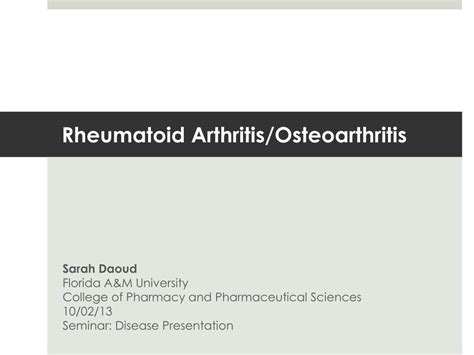In the realm of managing autoimmune conditions, Disease-Modifying Anti-Rheumatic Drugs (DMARDs) play a pivotal role. These medications are designed to alter the course of autoimmune diseases, offering hope for patients seeking relief from chronic inflammation and joint damage. This comprehensive guide delves into the world of DMARDs, exploring their various types, mechanisms of action, and the benefits they provide. We will also address potential side effects and risks associated with these treatments, helping you make informed decisions about their use. Furthermore, we’ll discuss how to choose the right DMARD for individual needs and look ahead at future advancements in DMARD therapy.
Come join bzcat.xyz in exploring this topic extensively.
1. Introduction to DMARDs
Disease-Modifying Anti-Rheumatic Drugs (DMARDs) are crucial in the management of autoimmune conditions such as rheumatoid arthritis, lupus, and psoriatic arthritis. Unlike symptomatic treatments that only address the immediate effects of these conditions, DMARDs aim to modify the underlying disease process. By targeting and inhibiting specific components of the immune system, DMARDs can slow or halt disease progression, reduce inflammation, and prevent joint damage. These medications offer a more proactive approach to managing chronic autoimmune diseases, potentially improving long-term outcomes and enhancing quality of life. The effectiveness of DMARDs can vary depending on the specific drug and the individual’s response, making it essential to understand their role in treatment. In this guide, we will explore the different types of DMARDs, how they work, and their impact on autoimmune conditions, providing a comprehensive overview of these vital therapeutic options.

2. Types of DMARDs
DMARDs are categorized into two main types: conventional and biologic. Conventional DMARDs, also known as traditional DMARDs, include medications like methotrexate, sulfasalazine, and leflunomide. These drugs have been used for decades and work by broadly suppressing the immune system to reduce inflammation and prevent joint damage. Methotrexate is the most commonly prescribed conventional DMARD due to its effectiveness and relatively well-understood profile.
Biologic DMARDs, on the other hand, are newer and target specific molecules involved in the inflammatory process. These include agents such as tumor necrosis factor (TNF) inhibitors (e.g., etanercept, infliximab) and interleukin inhibitors (e.g., tocilizumab). Biologics are typically used when conventional DMARDs are not effective or cannot be tolerated. They are administered via injection or infusion and are often used in combination with conventional DMARDs to enhance treatment efficacy.
Both types of DMARDs aim to modify the disease course, but their mechanisms of action and administration routes differ. The choice between conventional and biologic DMARDs depends on the specific autoimmune condition, patient response, and overall treatment goals.

3. Mechanism of Action
DMARDs work through various mechanisms to alter the progression of autoimmune conditions and reduce inflammation. Conventional DMARDs, such as methotrexate and sulfasalazine, generally suppress the overall activity of the immune system. Methotrexate inhibits dihydrofolate reductase, an enzyme critical for DNA synthesis, which leads to a reduction in the proliferation of immune cells and thus lessens inflammation. Sulfasalazine’s exact mechanism is less clear, but it is believed to act as an anti-inflammatory agent and modulate immune responses.
Biologic DMARDs are more targeted in their approach. Tumor necrosis factor (TNF) inhibitors, like etanercept and infliximab, block TNF-alpha, a cytokine involved in systemic inflammation. By inhibiting TNF-alpha, these biologics help reduce the inflammatory response and subsequent tissue damage. Interleukin inhibitors, such as tocilizumab, target specific interleukins involved in the inflammatory process, further narrowing down the focus of treatment.
The choice of DMARD depends on the specific autoimmune disease and patient needs. Conventional DMARDs offer a broad approach, while biologics provide targeted treatment options for more resistant or severe cases.

4. Benefits of DMARD Therapy
DMARD therapy offers significant benefits in managing autoimmune conditions. Conventional DMARDs, such as methotrexate and sulfasalazine, effectively reduce inflammation and slow disease progression, leading to improved joint function and quality of life. They can prevent long-term joint damage and decrease the need for more aggressive treatments.
Biologic DMARDs provide additional benefits by targeting specific inflammatory pathways, leading to more precise and often more rapid relief of symptoms. These drugs can be particularly effective in cases where conventional DMARDs are insufficient or cause unacceptable side effects. By reducing inflammation and disease activity, biologics can enhance physical function and overall well-being. Both types of DMARDs, when appropriately chosen and managed, contribute to better disease control, fewer disease flares, and a reduced risk of permanent joint damage, ultimately improving patients’ ability to lead a more active and fulfilling life.
5. Potential Side Effects and Risks
While DMARDs are effective in managing autoimmune conditions, they can also present potential side effects and risks. Conventional DMARDs, such as methotrexate and sulfasalazine, may cause gastrointestinal issues like nausea, vomiting, and diarrhea. Methotrexate can also lead to liver toxicity and bone marrow suppression, which might result in anemia or increased susceptibility to infections. Regular monitoring of liver function and blood cell counts is essential for patients on these medications.
Biologic DMARDs, although often well-tolerated, carry their own set of risks. TNF inhibitors may increase the risk of serious infections, including tuberculosis, due to their immune-suppressing effects. They can also cause infusion reactions and potentially exacerbate existing heart conditions. Interleukin inhibitors, while targeting specific inflammatory pathways, can also lead to increased risk of infections and may have adverse effects on blood cell counts.
Both types of DMARDs require careful monitoring and management to balance their therapeutic benefits against potential risks. Regular follow-up with a healthcare provider is crucial to address any side effects promptly and adjust treatment as needed.
6. Choosing the Right DMARD
Choosing the right DMARD involves a careful assessment of several factors to ensure effective management of autoimmune conditions. The decision typically starts with evaluating the specific autoimmune disease, its severity, and the patient’s overall health. Conventional DMARDs, such as methotrexate, are often first-line treatments due to their proven efficacy and long-standing use. They may be chosen for their ability to manage symptoms and prevent disease progression effectively.
For patients who do not respond adequately to conventional DMARDs or experience significant side effects, biologic DMARDs may be considered. These drugs are more targeted and may offer better outcomes in cases where conventional therapies fail. Factors such as the patient’s history of infections, heart conditions, or other underlying health issues can influence the choice of biologic DMARD.
Personal preferences, such as the convenience of administration and the frequency of monitoring required, also play a role in decision-making. Collaborating with a healthcare provider to discuss the benefits and risks of each option, along with considering the patient’s response to previous treatments, is crucial for selecting the most appropriate DMARD.
7. Future of DMARD Therapy
The future of DMARD therapy holds promising advancements aimed at improving treatment outcomes for autoimmune conditions. Ongoing research is focused on developing new DMARDs with enhanced efficacy and reduced side effects. Scientists are exploring novel mechanisms of action to target more specific pathways involved in inflammation, potentially leading to more precise and effective treatments.
Biologic DMARDs are likely to see continued innovation, with new agents being designed to target previously unaddressed inflammatory mediators. Advances in personalized medicine may also play a significant role, allowing for treatments tailored to individual genetic profiles and disease characteristics, thereby optimizing therapeutic efficacy and minimizing adverse effects.
Additionally, there is growing interest in combining DMARDs with other therapeutic approaches, such as novel biologics or small molecules, to enhance overall treatment effectiveness. The development of oral biologics could improve patient convenience and adherence, addressing some of the challenges associated with current infusion-based therapies.
As research progresses, the future of DMARD therapy promises not only better management of autoimmune conditions but also an improved quality of life for patients, with more targeted, effective, and personalized treatment options on the horizon.
In summary, DMARDs play a crucial role in managing autoimmune conditions by modifying disease progression and reducing inflammation. Understanding the different types of DMARDs, their mechanisms, and their benefits helps in making informed treatment decisions. While potential side effects and risks exist, careful monitoring and personalized treatment plans can enhance their effectiveness. The future of DMARD therapy looks promising with ongoing advancements aimed at improving drug efficacy and minimizing side effects. By staying informed and working closely with healthcare providers, patients can achieve better management of their autoimmune conditions and improve their overall quality of life.
bzcat.xyz
